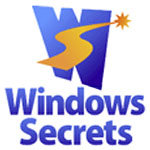
By Susan Bradley/Windows Secrets Newsletter
You just bought that new Windows 7 computer, and the next thing you know — you’re running out of space.
Here are some tips and tricks to show where your hard drive space is going.
Once upon a time, I bought a computer with a 1GB hard drive and thought I’d never outgrow it. A few years later, I think nothing of buying Terabyte hard drives. The pundits might declare we’re in a post-PC era, but the size of my C:drive begs to differ. It’s not just my basic documents that are taking up space, not even those hundreds of digital photos and videos. With Windows, there can be many hidden — and unneeded — files that are choking your hard drive.
Start with the basic Windows cleanup tool
It’s always best to start with Windows’ common maintenance tools such as Disk Cleanup, shown in Figure 1. In this example, I could reclaim a whopping 39.1GB of drive space. Selecting the Clean up system files button removes old dump files, log files, queued-up Windows error reporting logs, and previous versions files as well. For more on using Disk Cleanup, see the SevenForums article, “Windows 7 — Disk Cleanup — open and use.”

Figure 1. You get to Windows’ Disk Cleanup tool by selecting Computer and right-clicking the target drive. Select Properties and Disk Cleanup.
This post is excerpted with permission from Windows Secrets.




